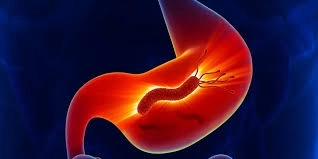
What Are the Symptoms of H. pylori Infection?
Published on: 2025-06-14 | Written by: Dr. Al-Fatt Seif Al-Masih, Consultant of Internal Medicine, Digestive System and Liver Diseases
Helicobacter pylori (H. pylori) is one of the most common bacterial infections worldwide. Many people carry it without knowing, as it often doesn't cause symptoms at first. However, in some cases, it can lead to digestive discomfort and serious complications if left untreated.
Dr. Olfat Saif Al-Masih explains in this article the most common symptoms of H. pylori, when to see a doctor, and how to diagnose and treat the condition effectively.
What Is H. pylori?
H. pylori is a spiral-shaped bacterium that resides in the lining of the stomach. It affects the stomach's ability to regulate acid production and may lead to chronic gastritis, peptic ulcers, and—rarely—stomach cancer.
Common Symptoms of H. pylori
According to Dr. Olfat Saif Al-Masih, symptoms vary from person to person, but the most common include:
-
Stomach pain or burning, especially on an empty stomach
-
Bloating and persistent gas
-
Nausea or a sensation of wanting to vomit
-
Bad breath, despite oral hygiene
-
Loss of appetite or unexplained weight loss
-
Feeling full after small meals
-
Frequent burping
In more advanced cases, the following serious symptoms may appear:
-
Bloody or coffee-ground-like vomiting
-
Dark, tarry stools
-
Fatigue or dizziness from anemia due to internal bleeding
How Is H. pylori Diagnosed?
As noted by Dr. Olfat Saif Al-Masih, there are several accurate methods for diagnosis:
-
Urea breath test
-
Stool antigen test
-
Blood test
-
Upper endoscopy with biopsy (if necessary)
Treatment of H. pylori
Treatment usually involves what’s called triple therapy, consisting of:
-
Two antibiotics
-
Proton pump inhibitors (PPIs) to reduce stomach acid
-
In some cases, a fourth medication may be added for resistance prevention
It’s essential to complete the full course of treatment to avoid recurrence or antibiotic resistance.
Dr. Olfat Saif Al-Masih’s Tips for H. pylori Patients
-
Avoid spicy and fried foods
-
Quit smoking and alcohol
-
Limit caffeine and carbonated drinks
-
Maintain proper hand hygiene
-
Do not share food or utensils

